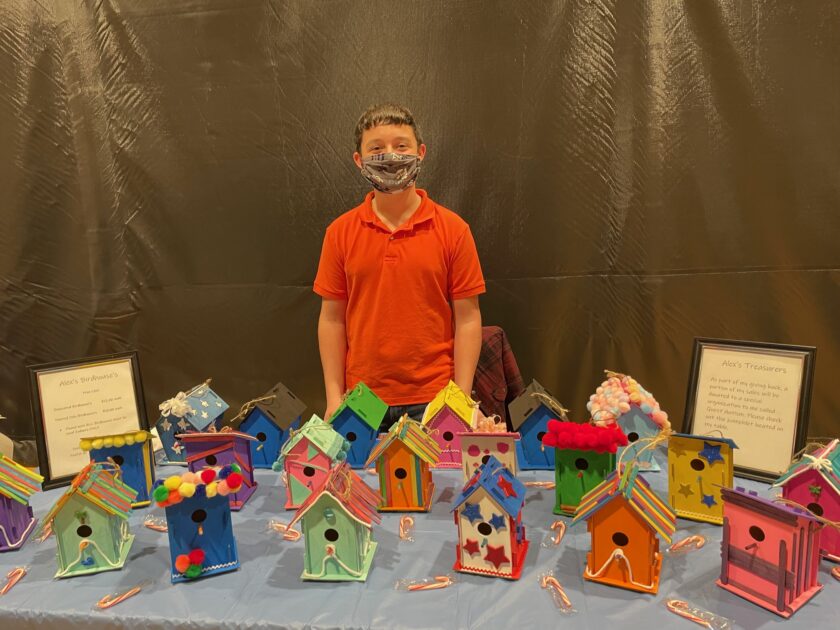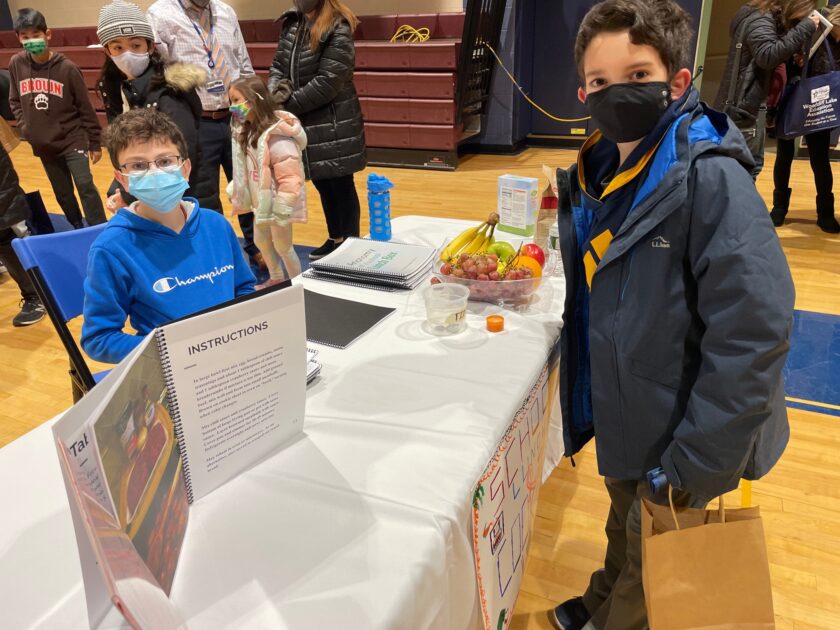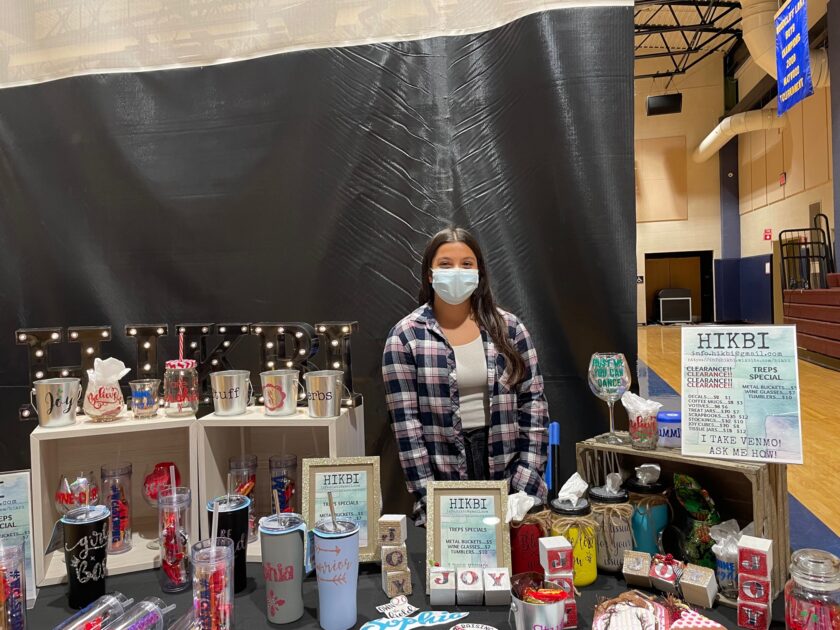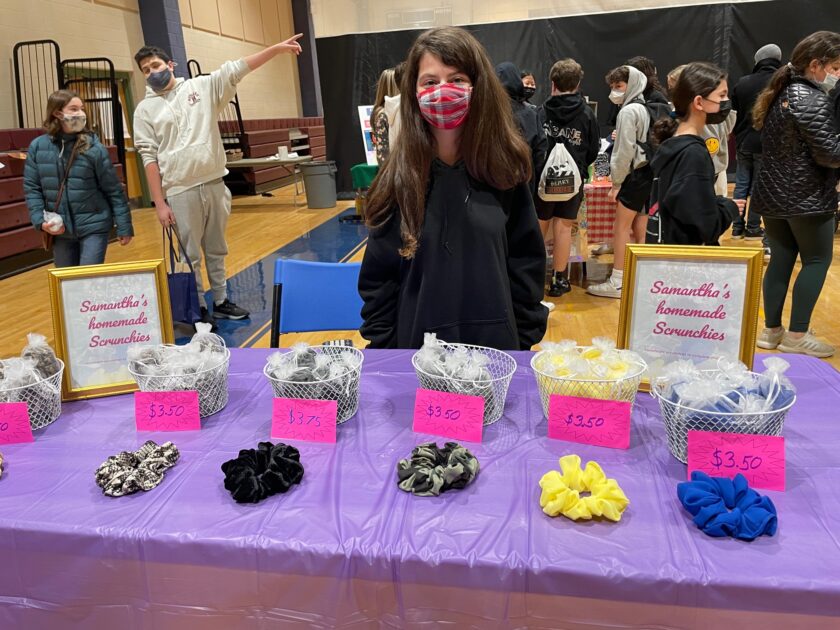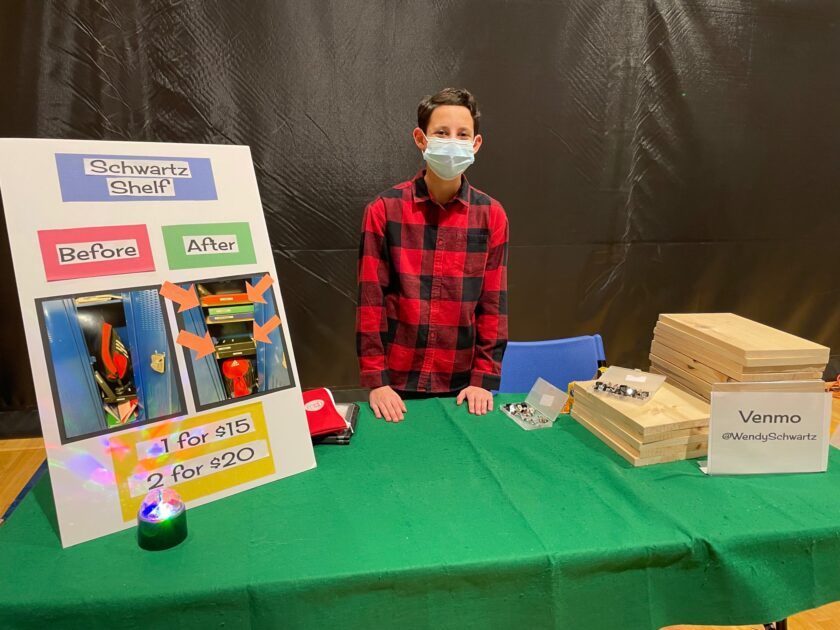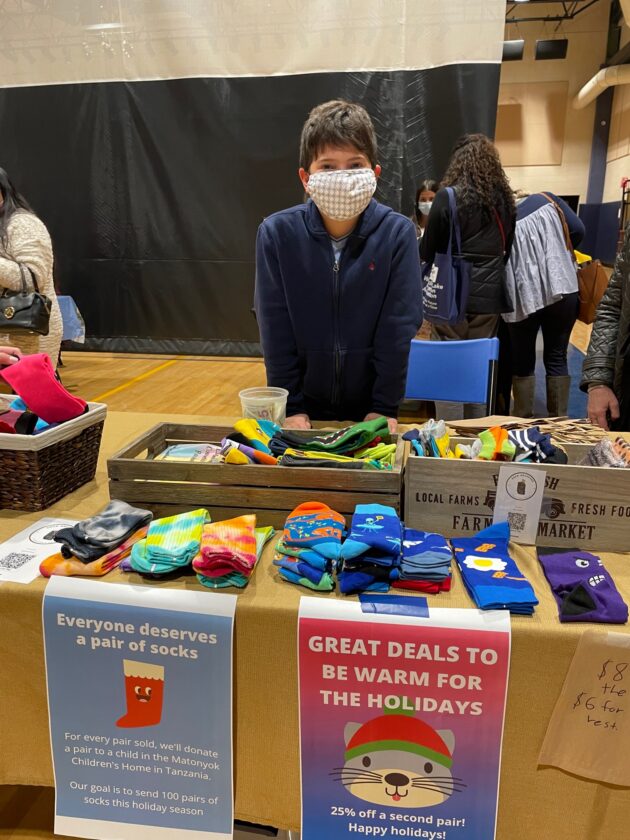
WOODCLIFF LAKE—Baking and hot cocoa kits, upcycled clothes, custom jewelry, locker organizers, healthy eating plans and cookbooks, and school spiritwear featured among the items shoppers snapped up at the innovative TREP$ Marketplace, at Woodcliff Middle School, on Dec. 1.
All the goods were available to the community by cash or Venmo.
Organizers say TREP$ Marketplace, held at the school gym, is a unique flea-market-style event: Vendors were students, aged 12–14, putting entrepreneurship skills they’d learned over the prior six weeks at an award-winning after-school club into practice.
Some sales were in support of humanitarian relief efforts overseas. Some had philanthropic aims closer to home. And many employed QR codes and other tools to funnel prospects and encourage repeat business and word of mouth.
These were products people need and would be proud to give as gifts or keep in play at home, school, or the office, and they were backed by business plans. This was — and is — the real deal.
Initially sponsored by Woodcliff Lake Educational Foundation, the TREP$ experience (trepsed.com) says it aims to inspire young people to think creatively and put their ideas into action by creating a new business.
The community was invited to support the young entrepreneurs. Shoppers came to hear their students’ pitches and check out their products against the backdrop of serious competition for dollars — and with the gift-giving season getting well underway.
Many kids, some saying they’re fans of the otherwise unrelated reality television show “Shark Tank” — in which a panel of potential investors listen to entrepreneurs pitch ideas for a business or product they wish to develop — sold out their wares. (Surely worthy of a respectful nod from “Shark Tank” stalwart Kevin O’Leary.)
Principal Michael Andriulli told Pascack Press on Dec. 15 that attendees “enjoyed a unique and exciting shopping event and met some of tomorrow’s business leaders.”
He added that money changed hands throughout the two-hour event and that the students kept their earnings to reinvest.
“While it was exciting to see the students make money selling their products, the lessons and skills that they learned through the process is what will inspire and lead to their success in the future. Events like the TREP$ Marketplace is what middle school is all about,” he said.
He added, “We are constantly seeking opportunities for our students to gain real-world skills, while exploring their interests and building their confidence in who they are.”
TREP$, short for enTREPreneur$, is a project-based learning program that teaches kids in grades 4–8 how to start their own businesses. They learn the lessons in classroom, after-school, or remote workshops, and apply them at home as they build their businesses with the support of their families.
The program adds online that “The whole school community comes out to enjoy the TREP$ Marketplace, held at the school or online, where the young entrepreneurs launch their businesses together. TREP$ can be offered as part of the curriculum or as an extra-curricular enrichment program. It can be taught by teachers or by volunteers in the school community.”
It notes that “Kids love entrepreneurship — it’s creative, empowering, and money-making. And since the kids decide what type of product they want to sell, according to their own interests or hobbies, TREP$ reaches the kids that teachers sometimes can’t.”
TREP$ dates to 2006, when two New Jersey moms (and teachers) supposed their own kids would benefit from learning business skills, earning money, and having fun.
To prepare for this event, the students receive instructions and guidance in school but work at home to write business plans and create advertisements.
In their workshops, the students follow a timeline to help them prepare for the grand opening. They learn how to leverage social media in a positive way to let their community know about their business and encourage shoppers to attend.
The students analyze the cost of creating their wares and set a retail price they’ve estimated will appeal to buyers — who they know can as easily move on to the next table.
They discuss how to present their “storefronts” and how to engage with customers on a personal level.
TREP$ says, “Kids really want to learn this. They love the idea of being taken seriously. They quickly learn that they need to behave professionally, and they do! The connection between hard work and success is made in the workshops. They choose success as their goal, and with the help of TREP$, learn the path that will take them there.”
Michael Kaplan, who facilitates the program at Woodcliff Middle School, told Pascack Press he was impressed with the students’ creativity.
“There were unique items for sale for the general public and school community. It was a wonderful opportunity for children to purchase gifts for their loved ones just in time for the holidays,” Kaplan said.
He cited ideas raised by Ted Dintersmith, a venture capitalist, and co-author of “Most Likely to Succeed: Preparing Our Kids for the Innovation Era” (2015) and producer, the same year, on the documentary “Most Likely to Succeed.”
Dintersmith, said Kaplan, posited that “the American education system should be re-imagined into cross-disciplinary programs that allow kids the freedom to develop core competencies through cross-disciplinary, project-based learning.”
Kaplan added, “Forward-thinking schools like Woodcliff Lake have chosen to offer their students true project-based learning experiences, like TREP$, that give children the opportunity to build their communication skills, practice informed decision-making, use their creativity and problem solving, and work on their understanding of money.”
(We looked up Dintersmith’s work, and we note that his model for education is based on disruption, which is not without its critics among the ranks of education historians.)
Whatever works. Hayley Romano, co-founder of TREP$, said one of the strengths of the program is that “The kids are so engaged in starting their businesses they don’t even realize the lessons they are learning.”
She added, “Regardless of the career path each chooses, the ability to think like an entrepreneur will serve them well.”
— Incorporating some background reporting by Susan McTigue/file

